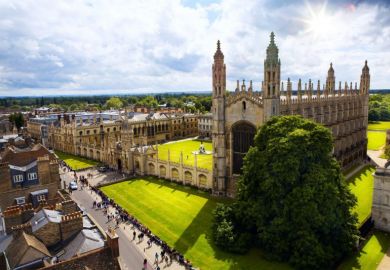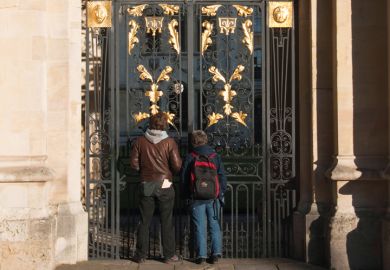The University of Cambridge has launched a £1 million bursary scheme for adults who have been hit the hardest by the coronavirus to continue their education.
The bursary from the university’s Institute of Continuing Education will give 1,000 adults in the UK the chance to study for a range of part-time qualifications.
The Thousand Futures Bursaries can be put towards 30 University of Cambridge undergraduate certificates, diplomas and advanced diplomas, such as business management, psychology, coaching, archaeology, English literature, art history or creative writing. The bursaries will be worth £1,000 each, meaning that 60 credits of undergraduate higher education will be available for as little as £1,150, the ICE said. In most UK universities the typical cost of 60 undergraduate credits ranges from £3,000 to £4,600, it added.
All UK residents who have been furloughed as a result of the coronavirus pandemic or those who have been made redundant from 1 April 2020 onwards will be eligible, regardless of educational background or previous qualifications.
The university said that more than 20 million people are eligible for the programme, as any of the 1.5 million people designated “most at risk of the virus” by the NHS can also apply for the bursary, as well as individuals aged 70 and over and all key workers.
The institution will provide undergraduate teaching online during 2020-21 “to maintain accessibility for all during the coronavirus crisis”, the ICE said.
Applications close on 31 July and will be allocated on a first-come, first-served basis.
ICE director James Gazzard said the programme will “support those adults who have been most affected by Covid-19 by providing more affordable access to higher education”.
“The full economic impact of the current pandemic has yet to be fully understood, but there is a risk that the crisis creates a ‘missed generation’ of adults left without jobs and unable to afford the time and cost of full-time retraining,” he added. “Our hope is that they will use these open-access Cambridge undergraduate qualifications to improve their employability and incorporate lifelong learning into their broader approach to well-being.”
Stephen Toope, Cambridge’s vice-chancellor, said that the Institute of Continuing Education “has long been at the forefront of our university’s efforts to widen access to higher education”.
“I am hugely proud of its determination to make sure that the current crisis does not hamper the educational opportunities of those adults who have been most directly affected. By offering bursaries to make its undergraduate programmes more affordable, the Institute of Continuing Education is making a very meaningful contribution to the communities we serve,” he said.
Register to continue
Why register?
- Registration is free and only takes a moment
- Once registered, you can read 3 articles a month
- Sign up for our newsletter
Subscribe
Or subscribe for unlimited access to:
- Unlimited access to news, views, insights & reviews
- Digital editions
- Digital access to THE’s university and college rankings analysis
Already registered or a current subscriber?




